Thank you to Katie Knox for the images.
Dear WinkWorld Readers,
I am playing with several new ideas (ok, researching) for a couple of new writing projects. This is just a peek into the direction I am planning. An annotated bibliography is attached here, also, for those who are interested. I welcome your comments as my ideas feel delicate and fragile.
What In The World is Research Rapture?
“I don’t want to catch you in the library again,” I heard myself saying to the graduate student, who looked at me with a knowing, guilty grin, and then we both laughed at the ridiculousness and the truth of what I had just said. You see, the graduate student, Sharon, loved to go to the library and, well, learn. She would read and think and doodle and scribble for hours, days, and months.
However, now, it was time to write. It was time for Sharon to stop researching and begin writing. Sharon had a bad case of “research rapture.” She loved learning anything new about her topic; she loved preparing for her literature review.
Research rapture has nothing to do with the biblical notion of rapture, but rather it captures the concept of loving to learn so much that you keep reading and reading, and you fail to stop and write.
What In the World Is The Kid Din?
Kid din happens when you love a kid or a group of kids so much you just think about them constantly. When you are with them, you lose track of all time. I know what it means, as I have experienced it, and I made up the term; however, it does come from a well-established body of research of the din in the head (Barber, 1980). Barber first noticed it when she was in Russia using her intermediate Russian. She began to notice that “a rising din of Russian in my head: words, sounds, intonations, all swimming about in the voices of the people I talked with…. The constant rehearsal of these phrases of course was making it easier and easier to speak quickly (Barber, 1980, p. 30; Krashen, 2015, p. 7).
If you have traveled, you may have noticed the same thing. For example, when I am away from Mexico or any Spanish-speaking country, I can feel my Spanish slipping away from me, and I hate it. But, when I have a few days in Mexico or Spain, I feel my Spanish coming back and flying around in my head. Next, I hear it coming out of my mouth, and I am relieved that I have not lost it. It really is a thrilling process for me.
Krashen (1983) wondered about Barber’s (1980) idea and even speculated that this din in the head experience might be when language acquisition is taking place, and thus is more common with those who are still in the process of acquiring language and receiving lots of comprehensible input.
I remember this early work well, and Krashen (1983) has a great little synthesis of further research, for those of you who are interested. However, what is fascinating to me now, is how the notion of the din in the head has expanded.
Other scholars just kept playing with the idea, too. Now, we have the reading din (McQuillan and Rodrigo, 1986; McQuillan, 1996); the melody din (Murphey, 1990); the visual din (Murphey, 1990, citing Ruth Weir 1962); the kinesthetic din (Murphey, 1990); and the intellectual din (Krashen, 2015).
However, I do not find in the literature anything about the kid din, which is the ecstasy I feel when I am with the 14 students of a small rural school on the isolated prairies. Those kids, their smiles, their giggles, their struggles, their books, their writing, their art projects, their days (like today) of suffering through top-down, mandated tests, their running and playing: It all just swirls in my head all of the time. I lose track of time. Murphey (1990) even makes connections to infatuation: Guilty.
In the new projects, which I am focused on, my plan is to connect the kid din (Wink, 2018, May 2 – you heard it here first, folks) to stories of these 15 prairie kids and what they are teaching me: We will call it, Prairie Pedagogy.
The first story is about one boy, who in the spring of his 8th grade year suddenly broke through a reading barrier, and within a matter of a few weeks went from being a reluctant reader to an avid reader. He started by grabbing Moby Dick one day, but soon he jumped to The Hobbit, which he devoured. From there he jumped right into Lord of the Rings. The previous year, his mom read three of the Harry Potter series to him, and now he finished the series on his own. This boy had a school cum file filled with words like special ed, non-reader, IEP: This all vanished one beautiful spring week, as his parent had the courage of patience–no small feat. They read to him, and they provided access to books. Mostly, they were very patient.
WinkWorld readers, in my 2 new writing projects, I will connect research rapture with the kid din with ‘real’ and ‘fake’ reading. I am not yet ready to share my definitions of real reading and fake reading, but you really do know them already.
Even Pinterest has anchor charts of real reading and fake reading.
What In The World Is “REAL” Reading?
Wink, J. (2018), p. x.
What In The World Is “FAKE” Reading?
Wink, J. (2018), p. 104.
Here is the bibliography I have been developing.
Research rapture din in the head bib – 5-1-18
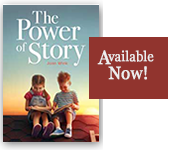
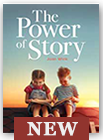
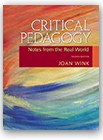
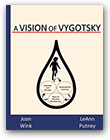

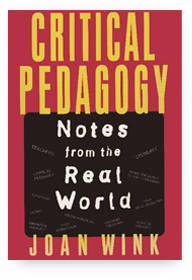
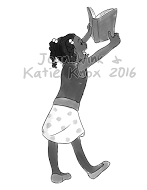



at 10:00 pm
Love it Joan. In this real/fake world we live in at present this is especially timely! Kid-din’ aside, I know of these writers you describe. And just today was talking with a long-time kindergarten teacher and we both agreed that some kids are hard to get out of your thoughts. I remember a few from my first year teaching K some 36 years ago! Write on!
at 1:43 am
Thanks, Chris, and just today, you had kid din: Gotta love that!
at 1:07 pm
Yes, it is true-this exhilarating experience has stayed with me for not only months-but years. The feeling of being blissfully lost in research, enchanted with ideas, and delightfully swept away into a world of others words and stories. Now, my mentor was ordering me out of my state of bliss to put my thoughts on paper. MY own musings, ideas and write… I felt a sense of panic welling up inside, and said, “You know I must have the most current information” as I felt myself stalling and feeling a bit angry that she was pulling me away from my state of pleasure. She replied, “Just write!” 30 years have passed and as I sit writing my story, I am reminded of this moment. The leap from Research Rapture to Wrangling Writing demands a sense of vulnerability. Brené Brown defines vulnerability as, “uncertainty, risk, and emotional exposure” (p. 34).
at 1:48 am
Oh, Sharon, what a beautiful comment! Thanks so much for sharing with us. Isn’t it amazing how we both remember it vividly–and, neither of us had ever heard of “research rapture” at that time. Yes, sometimes we just have to take the leap and start wrangling our writing! xo
at 12:49 pm
Joan,
Reading research “versus” reading rapture, is the perfect title for the dilemma that is constant in my professional life. I believe this is also the biggest gap in the literature. My thinking behind this dissonance is similar to what some readers feel when confronted with choosing between narrative and expository texts or aesthetic and efferent purposes for reading. “Research rapture” promises to bridge this gap and is exactly what I need to read!
From, Philomena
at 12:08 am
WOW, Mean, glad I posted this, as I never thought of it like this. Thanks for the thought! I’m musing.